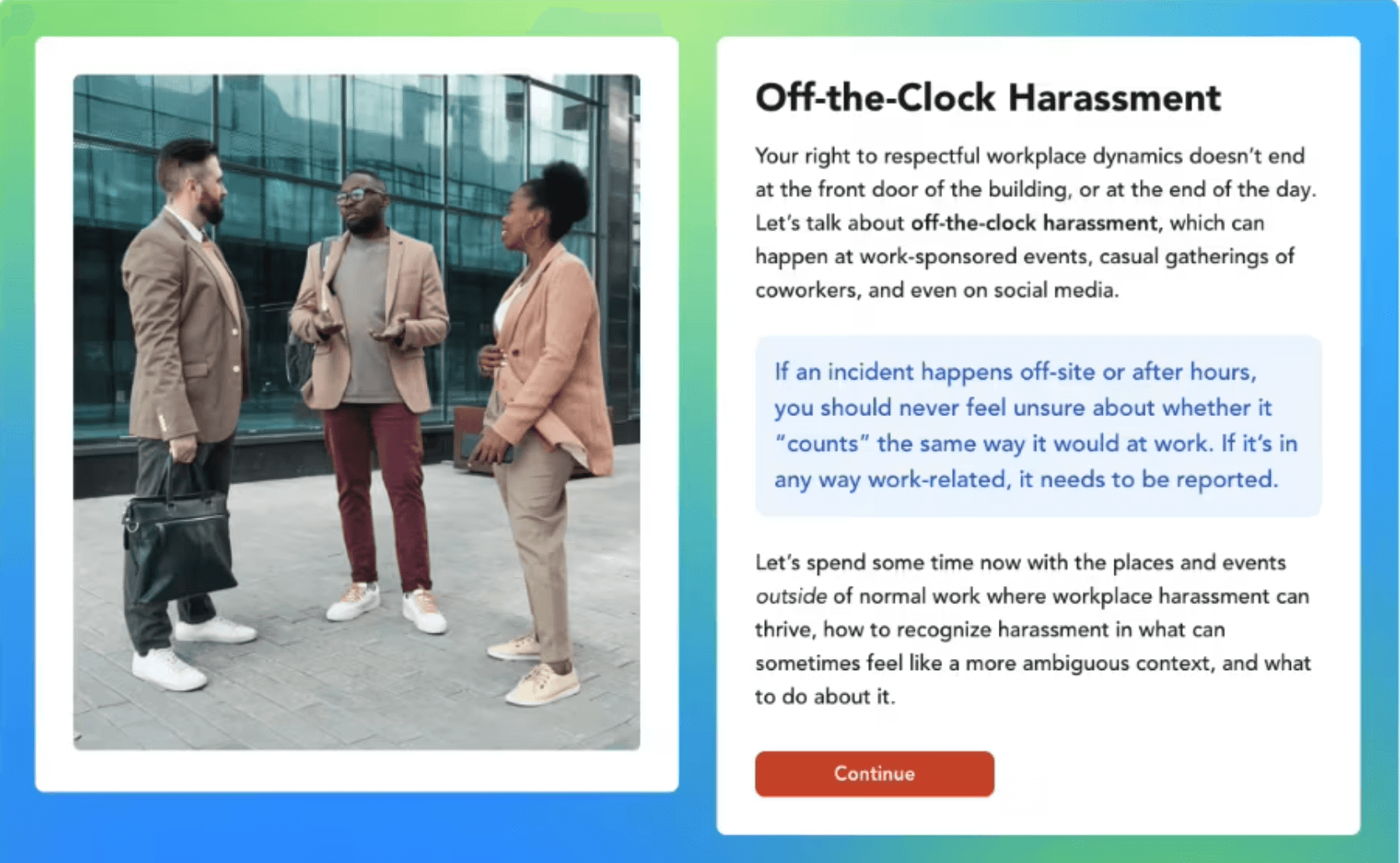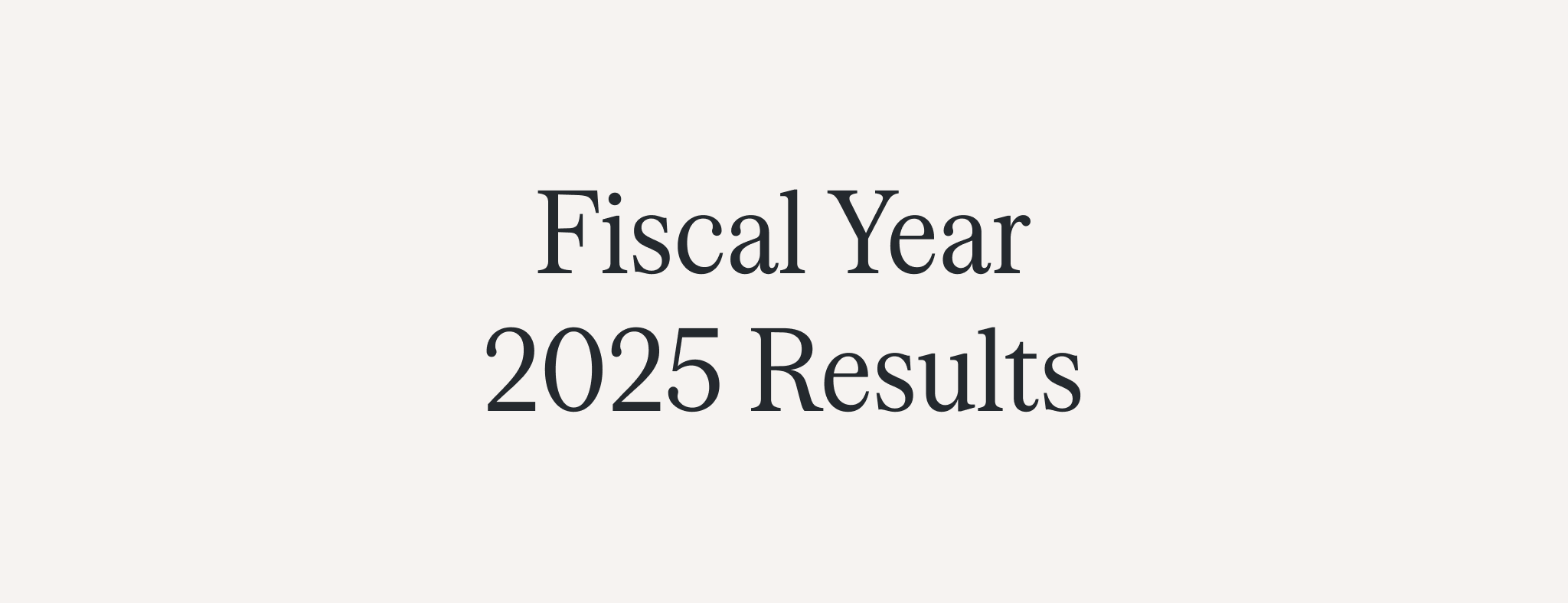A staggering 90% of our learners loved our April Allyship nudge—here's why . . .
Feedback can be nerve-wracking. Whether it comes from our managers, our peers, our clients, or our users, getting honest feedback can be surprising, regardless of what you anticipate.
At Ethena, we are no strangers to feedback. In fact, we ask for it constantly. Since we write and edit our training content weekly to focus on topics that are important, timely, and a little uncomfortable (in a good way!), we know that we don’t always hit the mark perfectly the first time. Our solution: making feedback convenient for our learners. We give our learners the opportunity to rate their experience of the content after every nudge and offer specific, free-text feedback that we monitor daily.
As anyone who has worked in a customer-facing job might know, people are more compelled to share their experience when they’re unhappy, especially when taking the time to type it out. However, our April Continuous Learning nudge, covering allyship in the workplace, surprised us. Learners told us how they found the training topical and timely, challenging and engaging, realistic and resourceful. 90% of learners rated the training positively, citing that the training didn’t shy away from hard topics and that the scenarios and questions addressed the “gray area” of allyship.
After combing through a month’s worth of feedback, we came to a handful of conclusions about allyship, how to talk about it, and what made our Allyship nudge so successful:
Allyship is Hard to Get Right
We take our job seriously at Ethena. Studies show that when workplace training is bad, workplace culture gets worse. Typically, required compliance training does not cover contemporary topics like allyship, which makes our job of addressing allyship in an impactful, relatable way all the more daunting.
While scary to consider, we thrive in the challenge that “gray area” content—i.e. training content that doesn’t have a clean-cut, objective solution—presents. Allyship, which is sometimes interpreted as political and polarizing, can be difficult to explain and understand for an employee base with different identities and experiences. By leaning into the nuance, we were able to create a thought-provoking and challenging training that was less of a “check-the-box” activity and more of an empathy-building exercise. Rather than listing do’s and don'ts, we talked frankly about performative allyship and privilege as well as how to show up for your coworkers in big and small ways. Many learners shared that our Allyship nudge was their favorite training so far because it required them to sit and contemplate on our examples and questions rather than immediately clicking on the obvious answer.
Just like our Training, Talking about Allyship Requires Regular Attention
At Ethena, we talk a lot about context. Most of your coworkers may know by now to not use derogatory slurs towards their colleagues (or anyone!), but they may not know why it’s important to share pronouns in the workplace, what a microaggression looks like, or how to self-identify privilege in the workplace. As we continuously mention in our trainings, context changes, and the nudge we write today might not age well five years from now––or even six months from now. Our goal at Ethena is to create training that is reflective of the world and context we live in today, because the issues we face in the workplace today aren’t cut-and-dry: they’re specific and difficult to solve with one, generalized answer. Acknowledging that, as well as inviting learners to respond to the training we write for them, allows us to meet people where they are with training that’s genuinely engaging, informative, and helpful.
The timeliness and specificity of our Allyship nudge made a significant, positive impact on our learners. It came soon after the waves of attacks on Asian Americans and Pacific Islanders in the United States, a time when many of us were logging into work frustrated, grieving, and scared. As the news circulated, people were wondering how they could help, or, in some instances, why they should care. In our nudge, we highlighted the rise in hate crimes against AAPI folks and added a slide that provided additional resources. Learners commented how they felt seen and included in the training in a way they had not been before, how they learned from the extra resources, and how appreciative they were of training that spoke to the problems and anxieties they were actually feeling in the moment.
Allying with the AAPI Community
As AAPI month draws to a close, we want to continue advocating for, celebrating, and allying with all our colleagues in the workplace. For those interested in AAPI-specific resources, organizations, and tactics to help better support our colleagues of Asian descent, we’ve shared a useful and recent list here. For more general resources on allyship and how to be an ally to all marginalized communities, here is a list of other great resources:
- "Being a Better Workplace Ally," Society for Human Resource Management
- "Be a Better Ally," Harvard Business Review
- "The psychology of being a better ally in the office – and beyond," The Conversation
- "Being a Better Ally to All," Network of the National Library of Medicine
- "A Guide to Being an Ally to Transgender and Nonbinary Youth" (or in our case colleagues), The Trevor Project
- "Doing Disability Ally Work"








